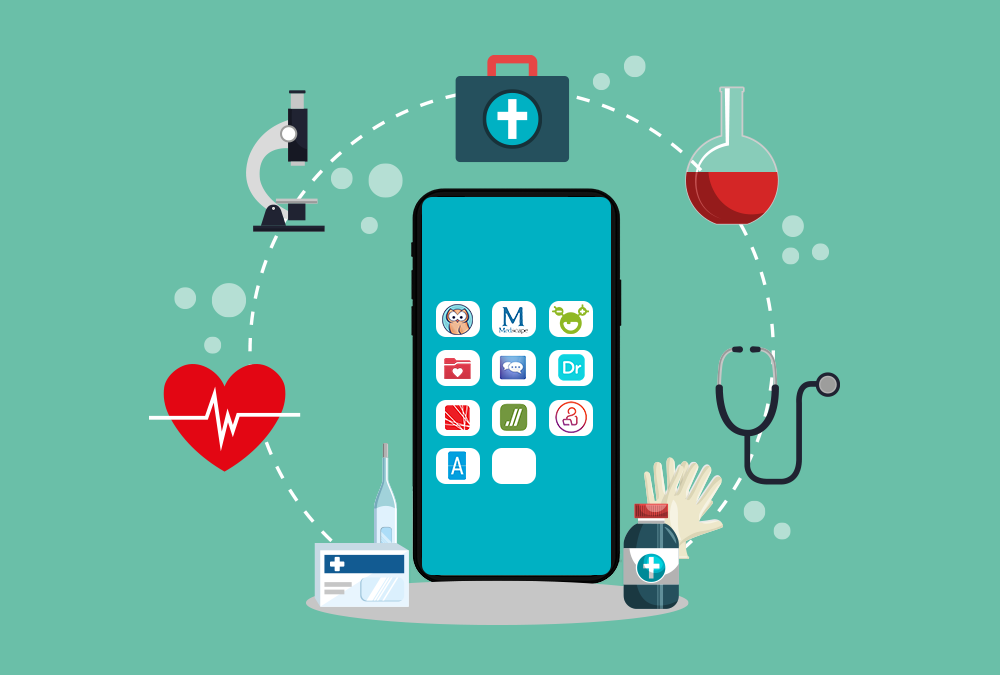Revolutionizing Healthcare Access and Services Through Digital Solutions.In a world where smartphones have become an extension of our very beings, it comes as no surprise that they have begun to redefine the way we interact with the healthcare industry. HealthTech apps, a burgeoning sector in the tech world, are transforming the landscape of healthcare access and services. These digital solutions are not only making healthcare more convenient and accessible but are also ushering in an era of preventive care, personalization, and patient empowerment.
The Rise of HealthTech Apps
HealthTech apps, a portmanteau of “healthcare” and “technology,” have seen a meteoric rise over the last few years. With the proliferation of smartphones and the ever-increasing availability of the internet, people now have a wealth of information and healthcare tools at their fingertips. These apps cover a wide range of functionalities, from simple symptom trackers to comprehensive electronic health records and telemedicine platforms.
Empowering Patients
One of the most significant advantages of HealthTech apps is their ability to empower patients. Individuals now have the tools to actively manage their health. They can monitor their vital signs, track their exercise and dietary habits, and even set medication reminders, all from the comfort of their smartphones. This self-monitoring approach fosters a culture of proactive healthcare and helps in early detection and prevention.
Telemedicine: Bridging the Gap
The advent of telemedicine through HealthTech apps has been a game-changer, especially in remote or underserved areas. Patients can now consult with healthcare professionals via video calls, access medical advice, and even get prescriptions, all without leaving their homes. This not only provides convenience but also reduces the burden on physical healthcare facilities, making it easier for patients to access quality care.
Personalization: Tailoring Healthcare to Individuals
HealthTech apps are masters of personalization. They can analyze vast amounts of data to provide personalized health recommendations, taking into account an individual’s age, sex, medical history, and lifestyle. Whether it’s suggesting suitable exercise routines, dietary plans, or medication reminders, these apps help users make choices that are specifically tailored to their needs.
Data-Driven Healthcare
The ability to collect and analyze health data is a cornerstone of HealthTech apps. Users can monitor and record a plethora of health metrics, which can be shared with their healthcare providers. This real-time data sharing allows for more accurate diagnoses, better treatment plans, and a higher degree of accountability for both patients and doctors.
A Global Perspective
HealthTech apps are not confined to the developed world. They are playing a pivotal role in improving healthcare access in developing countries. These apps, often with low data requirements, allow users in remote regions to connect with healthcare professionals and access vital information. They bridge the gap between urban and rural healthcare, making it possible for people in remote areas to receive expert advice and even essential diagnostics.
The Future of HealthTech Apps
The future of HealthTech apps is nothing short of exciting. As technology continues to evolve, we can expect even more advanced features such as AI-driven diagnostics, wearables that seamlessly integrate with apps, and improved connectivity. The integration of virtual reality and augmented reality may revolutionize medical training, allowing medical students to practice surgeries in a virtual environment. Moreover, blockchain technology could enhance data security and enable patients to have more control over their health data.
In conclusion, HealthTech apps are changing the way we perceive and access healthcare. They are not just tools; they are gateways to a new era of healthcare where individuals are more in control of their health, where access is universal, and where preventive care takes center stage. As we move forward, it’s important for these apps to strike a balance between technological advancement and ethical considerations, ensuring that the healthcare revolution is both efficient and empathetic. With the rapid advancements in this field, the only certainty is that the future of healthcare is, without a doubt, digital.

